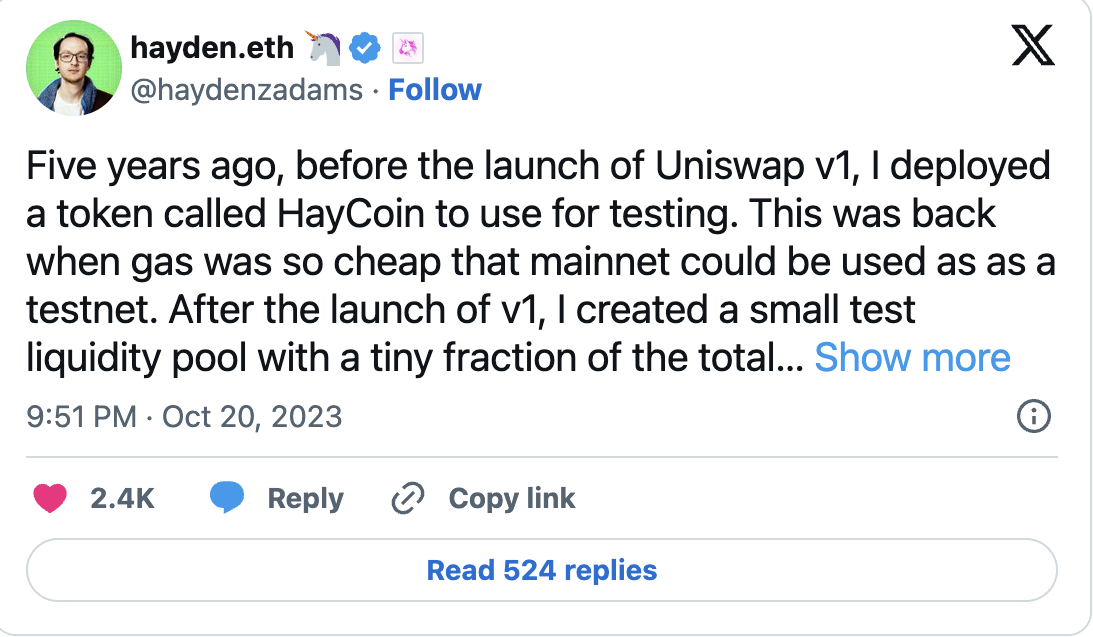Uniswap founder Hayden Adams has shocked everyone with an announcement he made on X. In his post shared on October 20th, Adams revealed that he burned 99% of the total supply of HayCoin (HAY) tokens. The famous figure had expressed concerns about price speculation in recent days, which is why he removed a large portion of the tokens from circulation.
Attention-Grabbing Move by a Prominent Figure
Hayden Adams had used the HAY token project to test the decentralized finance protocol (DeFi) Uniswap before its launch. During the protocol’s testing phase, he created a small test liquidity pool with a tiny portion of the total supply and held over 99.9% of the HAY tokens in his personal wallet. This token was trading like a six-digit meme token just a few weeks ago:
“Over the years, a few people noticed it and bought it as a joke or for novelty. It surprised me to see people buying and selling a significant amount of tokens last week, treating it like a memecoin. The crypto sector can sometimes be strange.”
Valued at $650 Billion
According to Adams’ post, approximately $650 billion worth of HAY tokens were burned, and the founder of Uniswap dismissed price speculation as foolish. He stated that he did not want his profile picture associated with the token:
“I’m uncomfortable having almost the entire supply of a token that people speculate on, nearly 99.99% of it, so I decided to burn all the tokens in my wallet, which were valued at a ludicrous $650 billion.”
When a token is burned, it is permanently removed from circulation, and it also has inflationary effects on the price due to a decrease in the existing token supply. According to CoinGecko data, at the time of writing this article, HAY token had experienced a 30% increase in the last 24 hours and was trading at $3,839.
In addition to the impact of token burning on the HAY price, an X user stated that this event could be considered a taxable event. According to this, disposing of a $650 billion asset results in a $128 billion long-term capital gain obligation assuming a zero-cost basis.

 Türkçe
Türkçe Español
Español










